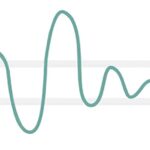Actress Lisa Ray is open about managing menopause symptoms. In a new social media post, the 53-year-old shared how hormone replacement therapy helped her.
Cancer survivor actress Lisa Ray has spoken out about the symptoms of menopause. The actress, who suffered early chemotherapy-induced menopause at the age of 37, began hormone replacement therapy at the age of 53. However, the former model, which was diagnosed with multiple myeloma in 2009, warns that it “does not fit all sizes.”
Lisaray regarding hormone replacement therapy
After fighting rare blood cancers affecting plasma cells, the “Water” actress has certainly produced awareness about multiple myeloma. Lisaray, now in her 50s, is on her mission to share her menopause-related experiences as “#menopausematters.”

In a new Instagram post, Lisa Ray said: “HRT is not all sizes and is not mandatory for all women. Please consult and discuss with a qualified medical professional.”
“I entered early chemotherapy-induced menopause at 37. I recently started HRT at the age of 53.”
Why did Lisa Ray wait so long?
This is her reason:
1. Like many others, I was later convinced of the direct link between HRT and cancer through women’s health initiative research.
2. There were no conditions for menopause to seek help.
3. I didn’t know who to ask or where to go.
4. I accepted that I wanted to start now but it was too late.
However, Lisaray decides to do it again.
“It sparked by all the menopause conversations I’ve been doing, and I met Dr. Priyanka Meta, an integral gynecologist in Dubai and a female hormone crusade, and I was hesitant for a while (even though I hate needles) and started a blood test, supporting Priyanka and starting a HRT protocol supported by my girl tribe.”
Just a few weeks later, here’s what Lisa Ray discovered about the benefits of HRT:
1. I sleep like a baby wrapped in cotton wool.
2. My afternoon energy dip is gone.
3. My mood is stable.
4. If medical start 5 years or more after menopause, my insurance will not cover HRT.
5. Why didn’t I start before?
Check out her post here
She is filled with a mixture of gratitude and wonder, and an outrage. “My generation is upset that we have not had access to the right information, that our peri and menopause symptoms have been dismissed, that we are gas-lit, that women’s health is so badly overlooked and underfunded,” writes Lisa Ray, who follows a weightlifting routine to manage weight gain during menopause.
She asked, “If more men were suffering through the population (or openly discussing androposing), do you think this is true?” ”
This is why she is here, and is loudly proud, and with her two daughters, “The next generation of young women don’t have to doubt symptoms, never be silent, prepared for a hormonal trilogy (menopause, menopause, and liberation era!), embracing the holy stage from the holy grail of all messy, beautiful, sacred appearances. Live.”
What is Hormonal Replacement Therapy (HRT)?
This is a treatment used to alleviate menopause symptoms by replenishing the body with sufficient amounts, hormones that are no longer produced in mainly estrogen, and sometimes progesterone and testosterone. “Women with uterus require a combination of estrogen and progesterone to protect the endometrium (the innermost inner lining of the uterus). Women without uterus can take estrogen-only hormone replacement therapy.” It can be managed in several forms, including pills, patches, gels, and vaginal uses.
What are the benefits of hormone replacement therapy in women in menopause?
Some of the benefits of treatment in women in menopause include:
1. Relieve symptoms
“It greatly reduces menopause symptoms such as hot flashes, night sweats, and vaginal dryness, and can also help improve your sleep quality, mood and energy levels,” says the expert. These symptoms usually improve within days or weeks of treatment.
2. Prevents osteoporosis
“Maintaining bone density plays an important role in protecting long-term health and reduces the risk of osteoporosis and fractures,” says Dr. Bajaj. Thinning of bones is common after menopause, as the estrogen levels required for healthy bones decrease. According to the UK National Health Service, the treatment can help prevent osteoporosis by increasing estrogen levels.

3. Maintain muscle strength
It is very common to lose muscle strength after reaching menopause. Hormonal replacement therapy can help improve this and help keep your muscles strong. After consulting with your doctor, exercise along with treatment to keep your muscles strong.
Hormonal replacement therapy and cancer risk
One reason Lisa Ray chose to start this treatment is because she was “confident of a direct connection between HRT and cancer.” Lisa Ray’s concerns are valid and are shared by many women.
In fact, breast cancer survivors often avoid treatment due to the potential link between cancer and HRT. A 2008 study published in the Journal of the National Cancer Institute showed that it could increase the risk of breast cancer recurrence. However, another study showed that the risk was not increased. A 2022 study published in the Journal of the National Cancer Institute showed that postmenopausal women treated for early breast cancer had no increased risk of recurrence or death associated with the use of hormone replacement therapy.
The link between HRT and cancer, particularly breast cancer, depends on the type of treatment. “Estrogen-only HRT used in women who have undergone hysterectomy is not strongly associated with breast cancer. The total HRT containing both estrogen and progestogen is associated with a slight increase in breast cancer risk, especially when used continuously for more than five years,” says Dr. Bajaj.
What are the side effects of hormone replacement therapy?
There may be side effects. Some women experience:
- Breast tenderness
- Bloody
- headache
- nausea
- Mood fluctuations
- Irregular vaginal bleeding or spots
These side effects can be experienced when a woman first begins treatment,” says the expert.
Also, risks such as blood clots, strokes, and gallbladder problems are less common, but they are more serious.
At age 53, Lisaray opted for hormone replacement therapy. She has listed its benefits, but she also wants her Instagram followers to know that treatment is not mandatory for all women.
Related FAQs
Who should not take hormone replacement therapy?
Not all women are candidates for HRT. It is generally not recommended for women with a history of hormone-sensitive cancers such as breast cancer, endometrial cancer, vaginal bleeding of unknown cause, blood coagulation disorders, stroke, severe liver disease, or uncontrolled hypertension.
Is 30 years old too old to start HRT?
No, if it is medically indicated, 30 is not too old. Women who experience early menopause often start HRT before the average age of menopause, even from surgery, chemotherapy. The goal is to provide hormone support from the age of naturally menopause, approximately 50-51.
Does HRT stop period?
Whether HRT stops periods depends on the type of regimen used. Women who are postmenopausal women who use consecutive HRTs (daily estrogen and progesterone) usually stop completely. However, in perimenopause or early postmenopausal women, cyclical HRT can result in regular withdrawal bleeding that mimics the menstrual cycle.
Is HRT better than the pill?
Because HRT and contraceptives serve a variety of purposes, one is not strictly “better” than the other. The pill is primarily for contraceptive use, but it also helps regulate menstrual periods and hormonal symptoms in young women. HRT is specially designed to treat menopause symptoms and hormonal deficiency in women around or after menopause age.












